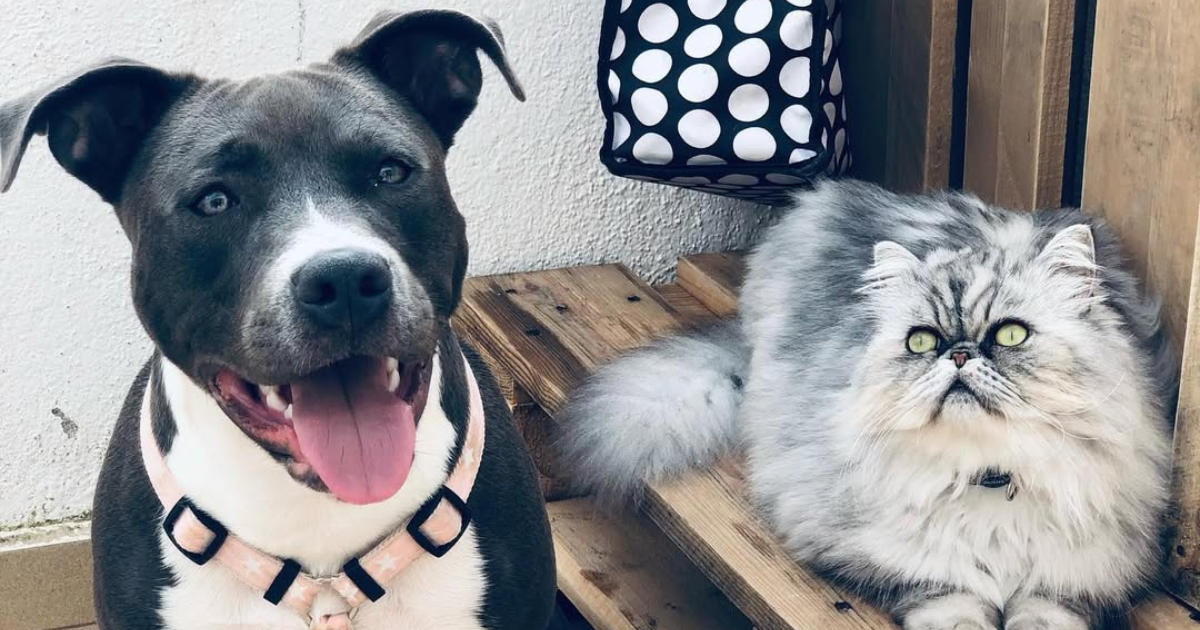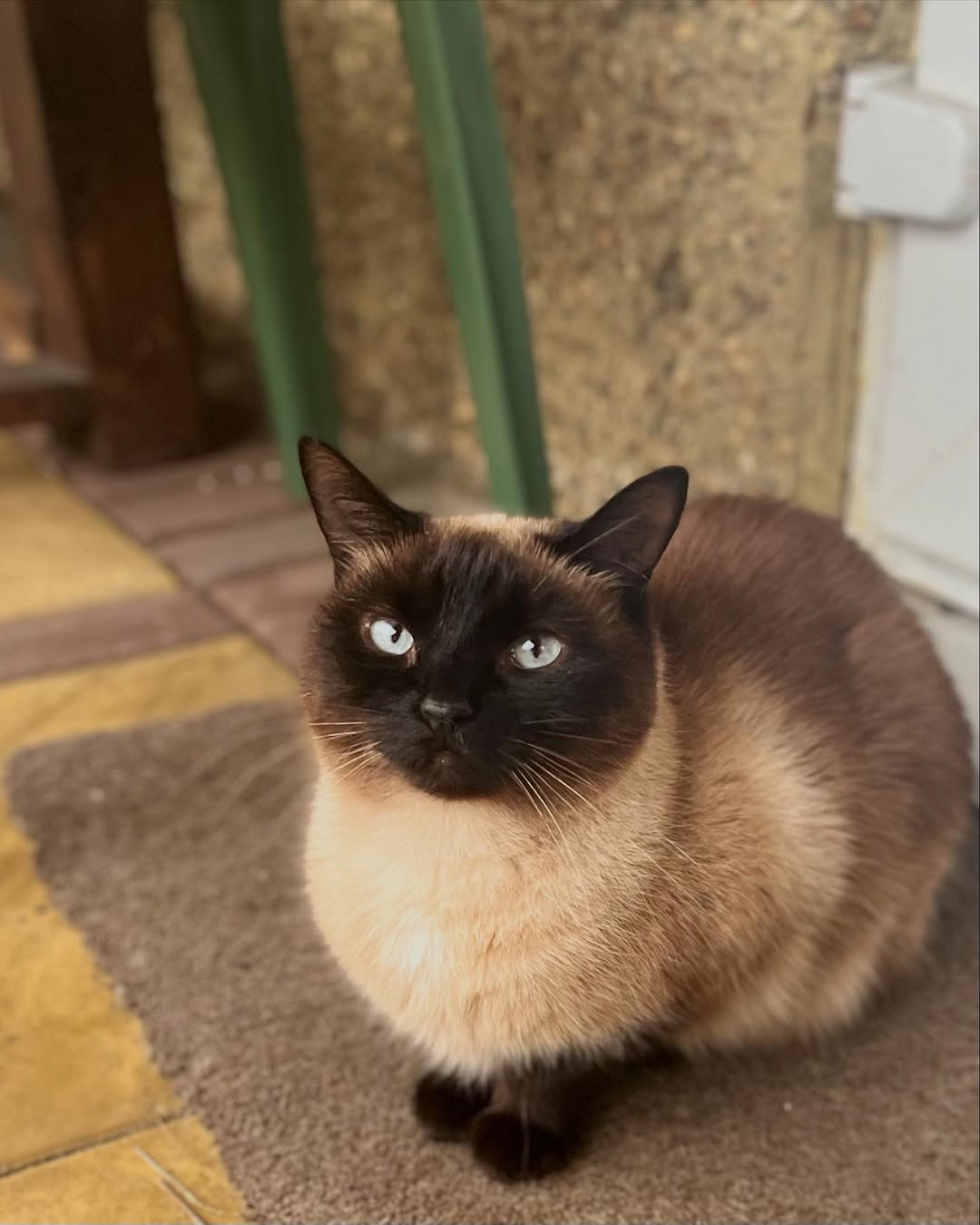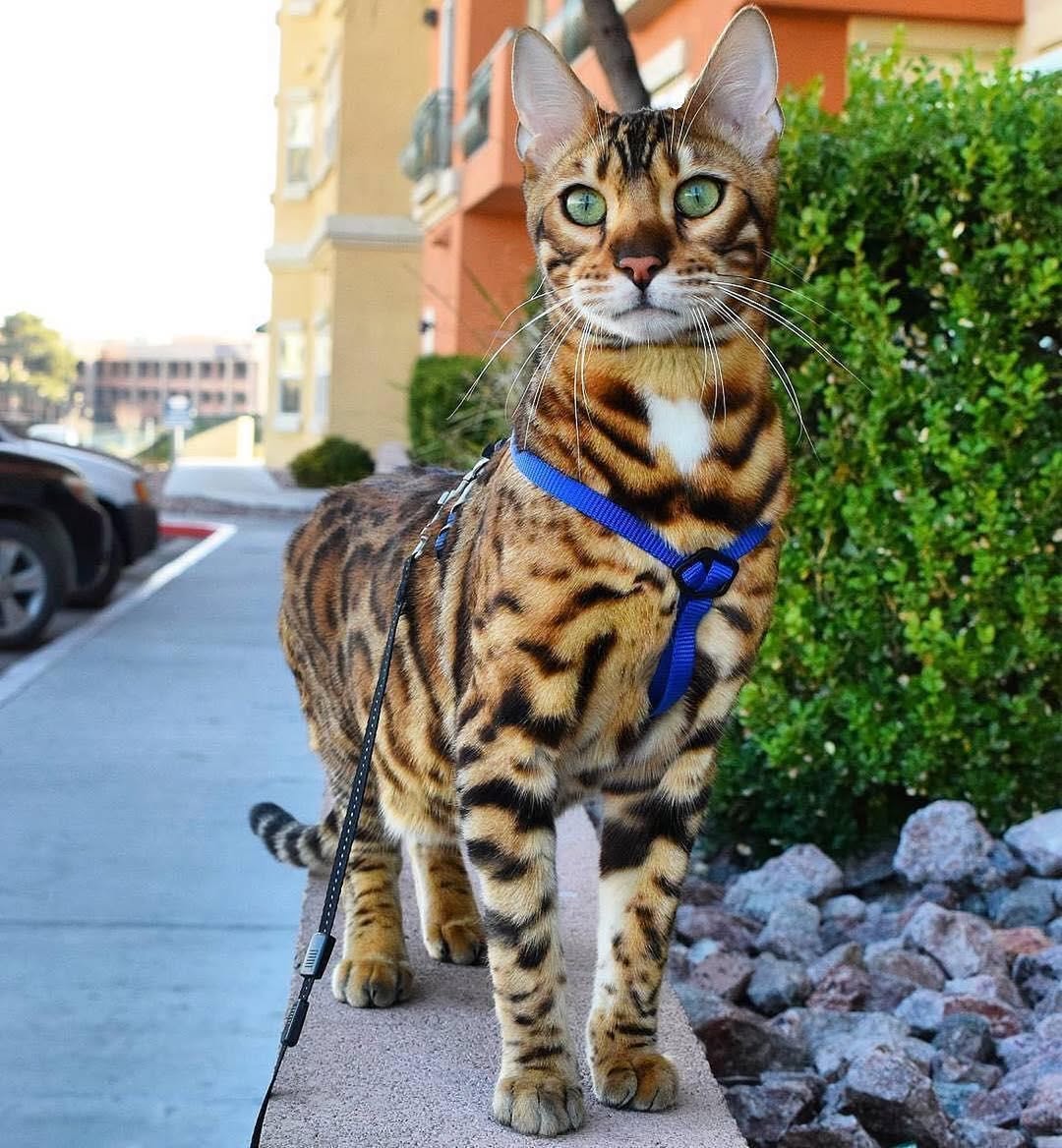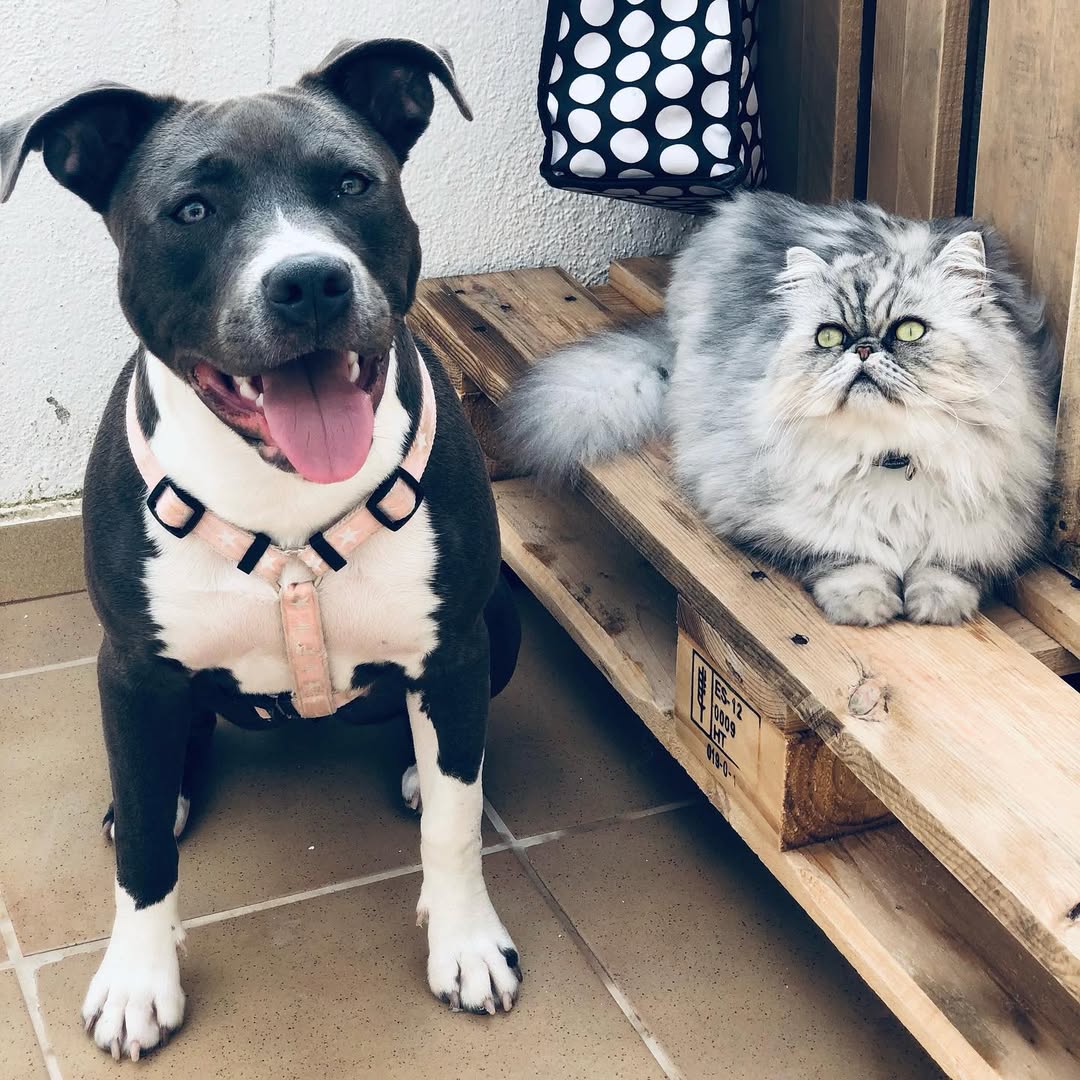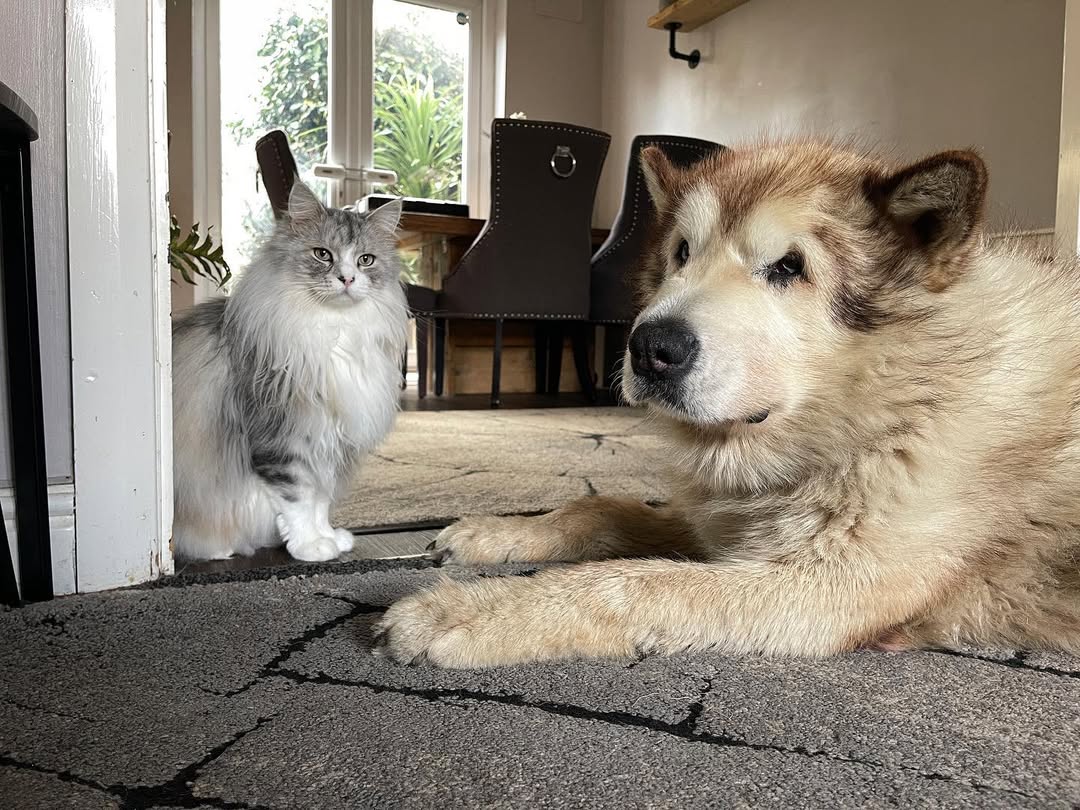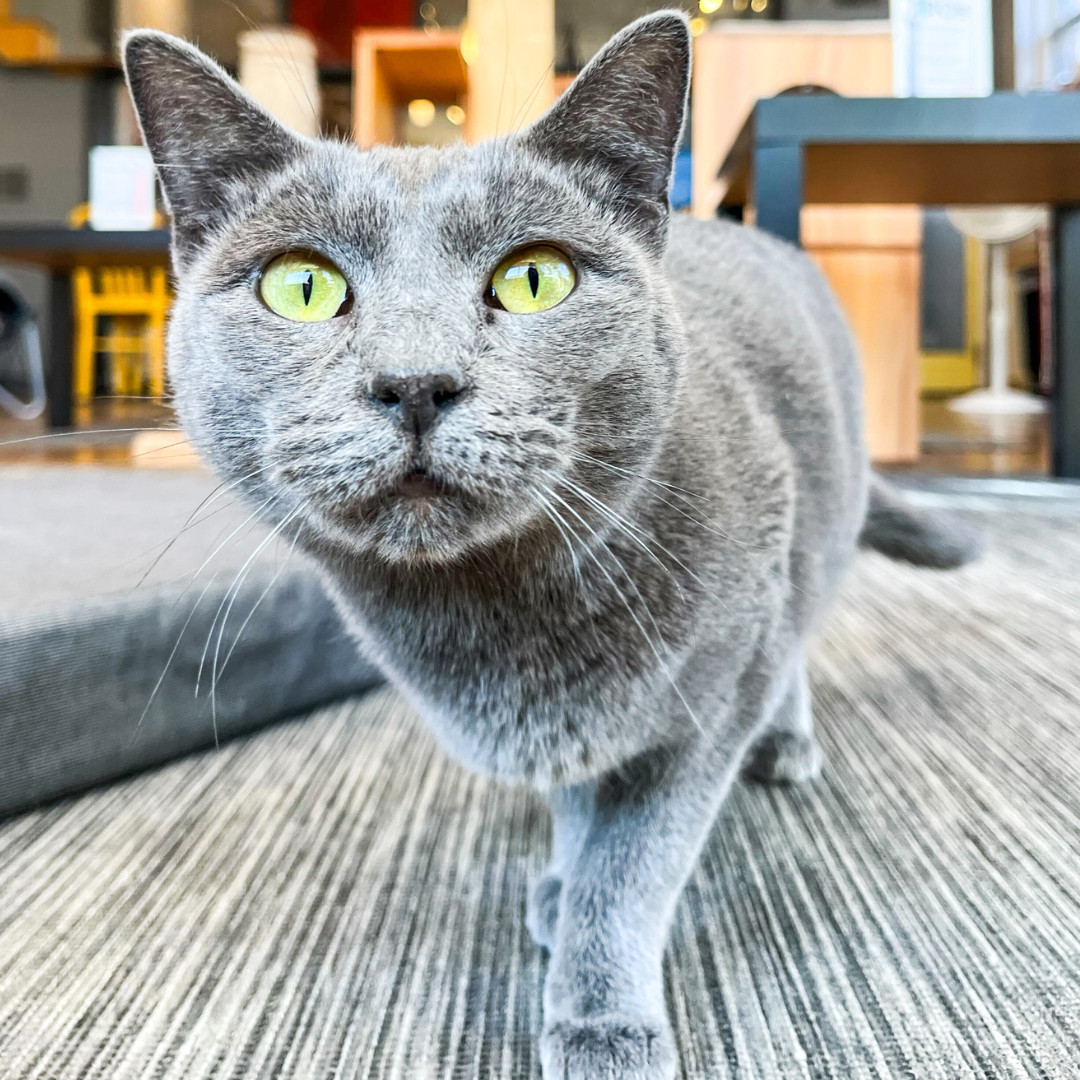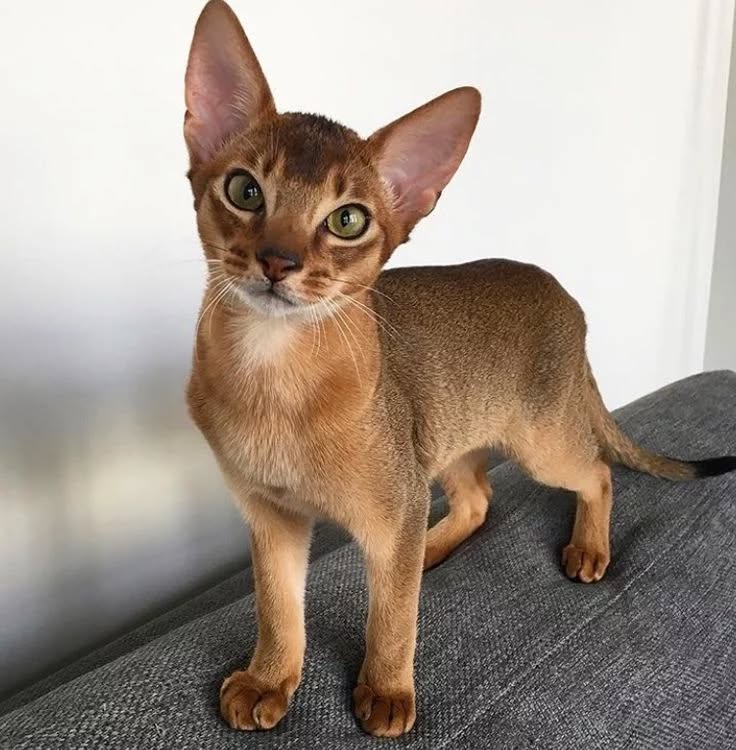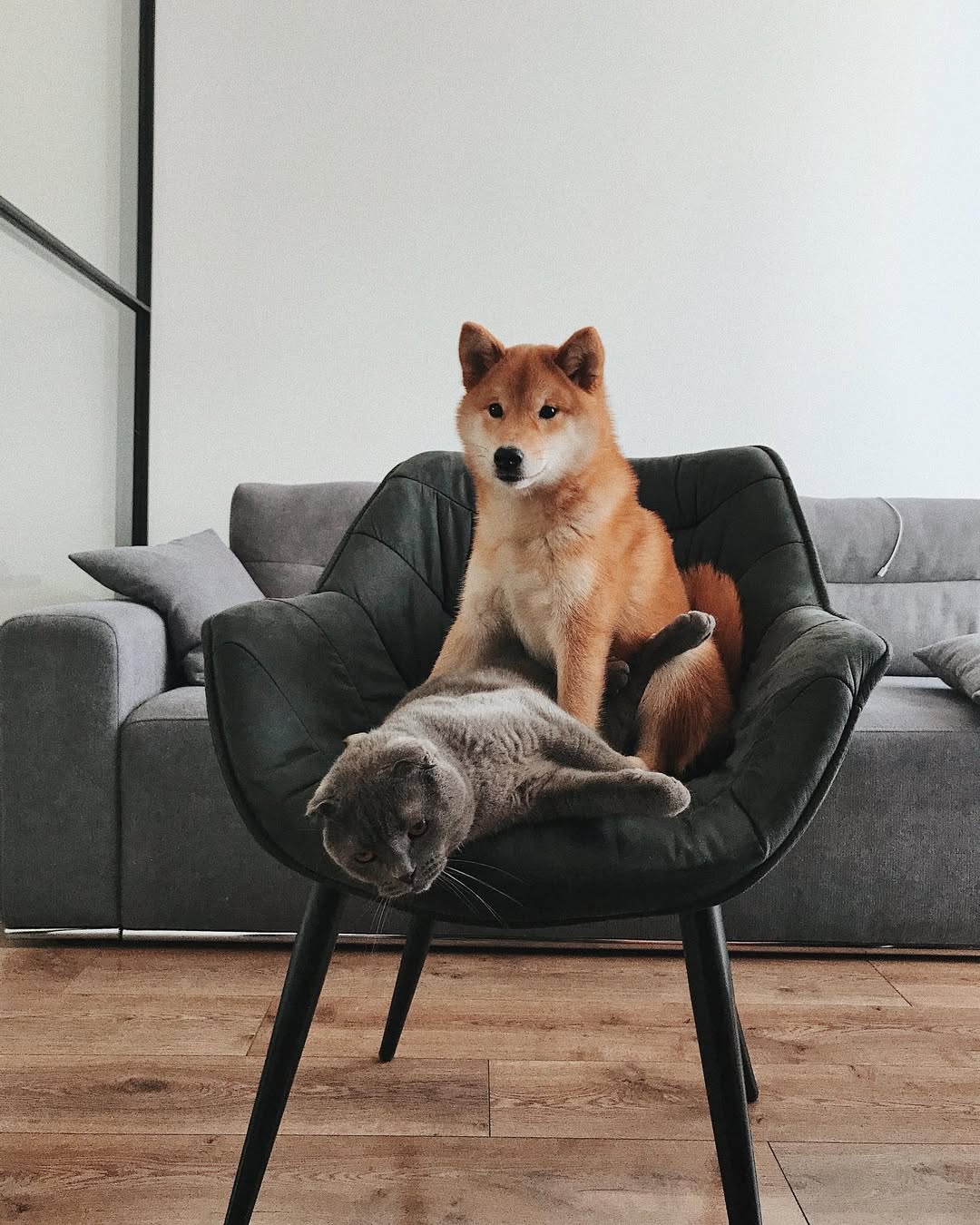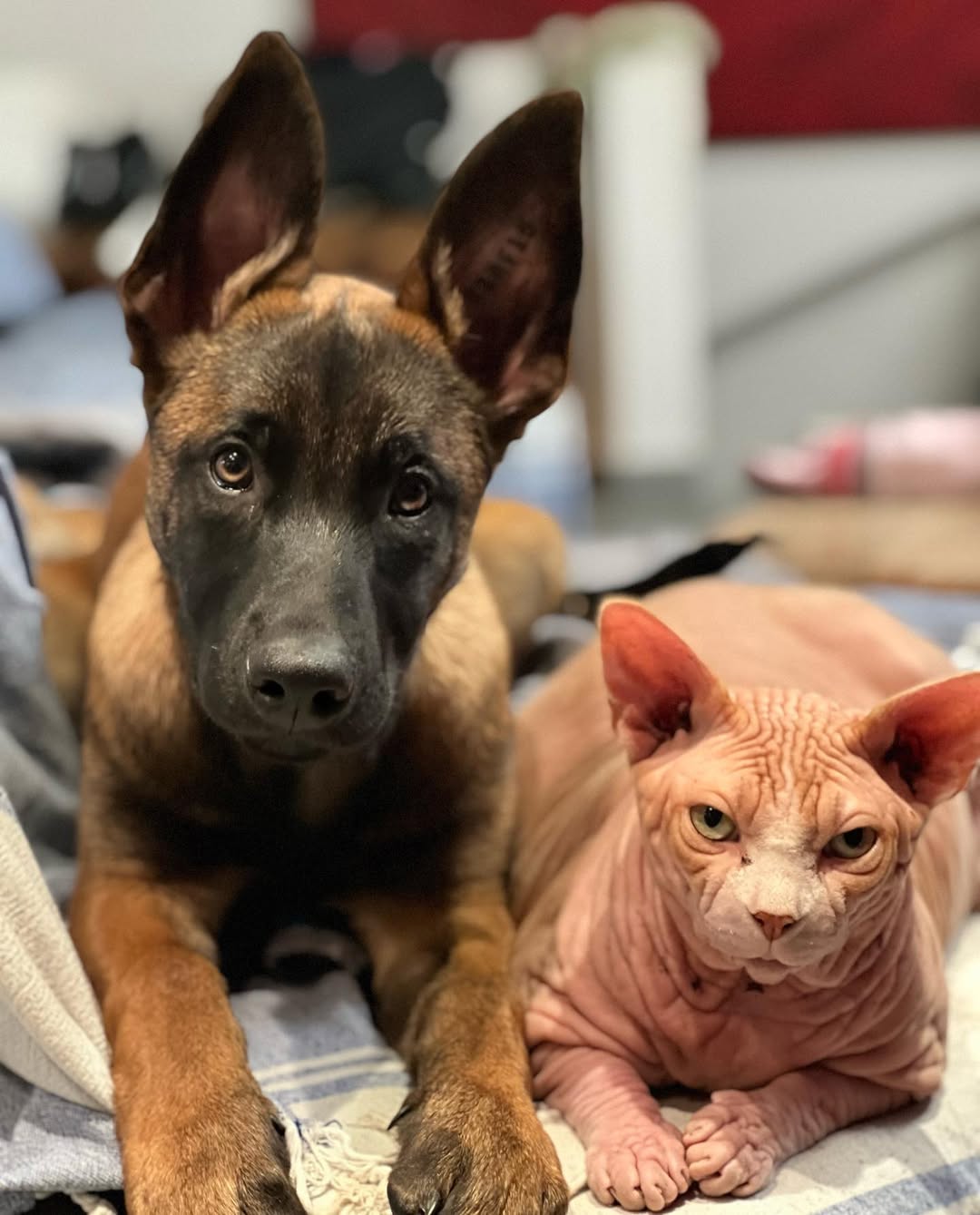📖 Table of Content:
Cats and dogs: the classic “odd couple” of the pet world. Some people think it’s as simple as tossing them together and letting nature take its course, but seasoned pet owners know better. While some cats take to dogs like peanut butter to jelly, others? Not so much.
The delicate art of introducing a cat to a dog requires patience, strategy, and perhaps a touch of sorcery—especially if you’ve got a tricky breed on your hands.
If you’re thinking about combining your feline and canine households, it helps to know which cat breeds might make the road a little bumpier. Some cats have personalities that scream “No dogs allowed!” while others simply need a bit more time to adjust.
Here’s a look at 8 cat breeds that can be a bit tricky to pair with dogs. (But hey, with enough patience and a truckload of treats, anything is possible!)
1. Siamese
The Siamese cat isn’t just the drama queen of the feline world; it’s also the ultimate attention hog. These chatterboxes love being the center of your universe and aren’t exactly thrilled about sharing the spotlight with a dog.
The moment Fido comes wagging over, don’t be surprised if your Siamese gives you that piercing “Why, human, why?” glare.
Siamese cats are highly intelligent and territorial, which means they’ll need time to figure out the newcomer’s role. Introduce them too quickly, and you’ll witness an epic staring contest that’ll put spaghetti westerns to shame.
However, with slow introductions and careful boundaries, your Siamese might learn to tolerate (or even appreciate) their canine sibling—as long as their throne remains unchallenged.
2. Bengal
Imagine having a mini leopard in your house, and you’ve got the Bengal. These energetic and athletic cats have opinions, and they aren’t shy about sharing them.
Pairing a Bengal with a dog can sometimes feel like hosting a reality TV show: there’s drama, there’s intrigue, and occasionally, there’s chaos.
Bengals thrive on high-energy activities, so if your dog is the hyper type, they might clash rather than click.
A dog’s uncoordinated zoomies may be met with an icy stare or a well-timed swat. However, if you can channel both pets’ energy into games and activities, they might just become partners in crime (emphasis on “crime—hide your valuables).
3. Persian
The Persian is the quintessential couch potato of the cat world, and they take their beauty sleep very seriously. So, imagine their utter disdain when a bouncy, slobbering dog disrupts their zen-like existence. You might as well bring in a marching band.
These fluffy divas prefer calm, quiet environments, and a dog—especially a noisy or overly enthusiastic one—is often their worst nightmare. Persians are also sensitive souls who don’t take kindly to sudden changes.
If you’re set on this pairing, patience is key. Keep interactions slow and always ensure your Persian has a safe, dog-free space where they can reign supreme.
4. Maine Coon
Yes, Maine Coons are known as the “gentle giants” of the cat world, but don’t let the nickname fool you. While they’re generally chill, introducing a dog into their kingdom can ruffle their sizable feathers.
Maine Coons are confident and territorial, and they’ll take their time deciding whether a dog is friend or foe.
The challenge here isn’t outright aggression but rather the Maine Coon’s tendency to assert dominance. If your dog is submissive, this might work. But if your dog likes to be the boss? Get ready for a showdown worthy of a nature documentary.
Give your Maine Coon plenty of vertical spaces (think cat trees or shelves) to escape and survey their domain while the dog learns its place.
5. Russian Blue
Russian Blues are the introverts of the cat world. They value their personal space and quiet time, and a dog—especially a boisterous one—can feel like an unwelcome extrovert crashing their solo party.
These sleek, silver-coated beauties are cautious by nature and take their time warming up to new people or pets.
A sudden dog-shaped intruder might send them into hiding for days. If you’re trying to make this pairing work, you’ll need to respect your Russian Blue’s boundaries and allow them to approach the dog on their own terms. Bribery (read: treats) might help, too.
6. Abyssinian
Abyssinians are the daredevils of the cat world, always climbing, exploring, and getting into places they shouldn’t. While that sounds like a recipe for a fun-loving pet duo, it can actually be a source of tension when introducing a dog.
Abyssinians are curious but also highly independent, and they don’t appreciate being chased or pestered. A high-energy dog might see their antics as an invitation to play, which the Aby will interpret as a hard no.
The key here is to keep introductions structured and supervise interactions closely. With time, an Aby might decide the dog is just another part of their obstacle course.
7. Scottish Fold
Scottish Folds are all about the chill life. They’re affectionate and sweet, but their laid-back nature can make them wary of excitable dogs. These round-faced cuties like to keep things mellow, and a dog’s chaotic energy might throw off their groove.
That said, Scottish Folds aren’t as territorial as some other breeds, which means they’re unlikely to instigate conflict.
The challenge lies in making sure your dog doesn’t overwhelm them. Provide your Fold with plenty of cozy hideaways and monitor the dog’s behavior to ensure they’re respecting boundaries. With enough time and gentle introductions, this duo might just find a harmonious balance.
8. Sphynx
The Sphynx cat’s lack of fur isn’t the only thing that sets them apart. These quirky and sociable cats love attention, but they’re also sensitive and prone to stress. A dog barging into their space can feel like a personal affront.
Sphynxes thrive on routine and predictability, so introducing a dog can throw their world into chaos. On the bright side, their outgoing personalities mean they’re more likely to give a dog a chance—if the dog approaches them calmly.
Keep the vibes positive and reward both pets for good behavior, and you might just see your Sphynx and dog forming a surprising bond.
